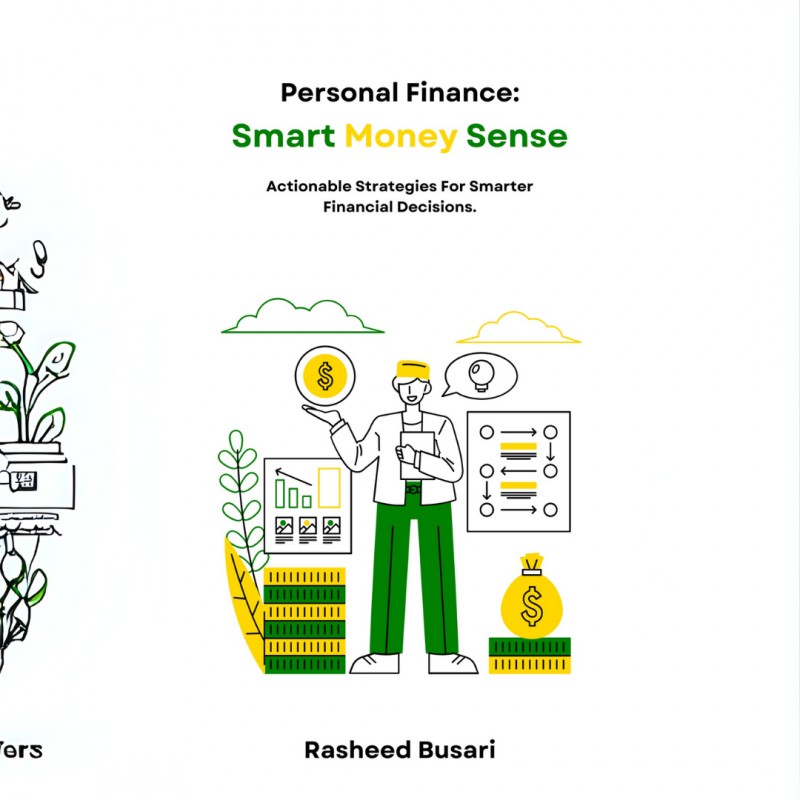Last Updated on 09/04/2025 by Rasheed Busari
Introduction to Treasury Bills
Looking for a safe, low-risk investment option that grows your money while you sleep? Treasury bills (T-bills) are a reliable option for beginners seeking to earn passive income and build long-term wealth. Suppose you’re looking for a safe way to invest your money and earn steady returns with a guarantee of principal at maturity. In that case, TREASURY BILLS, sometimes called T-bills, might be the perfect option, especially for beginners or conservative investors wanting to start investing. Treasury bills are government-backed investment instrument that offers low-risk or no-risk investments that can help you build financial security and wealth with peace of mind.
This guide will walk you through everything you need to know about treasury bills: what they are, how they work, how to invest, and why they’re one of the smartest choices for risk-free returns.

What Are Treasury Bills?
Treasury bills are short-term government debt instruments issued by the Central Bank of Nigeria (CBN) on behalf of the Federal Government. When you invest in T-bills, you’re lending money to the government for a short period, typically 91 days, 182 days, or 364 days in exchange for interest.
The government issues treasury bills as one of the open market operation tools to control the money supply in the economy by mopping up money in the system. It is also one of the cheap sources of funds used by the government to raise funds for Government capital projects. The unique features of Treasury bills are: it is risk-free and guarantee safe and steady returns because they are an investment instrument issued and backed by the Federal Government that guarantees both the principal and returns at maturity.
How you choose to plan your finances will determine the kind of life you live
How Treasury Bills Work
Treasury bills are issued by the CBN at a specified period, depending on the need for the CBN to control the money supply in circulation or as a source of funds for the Federal Government’s capital projects. Treasury bills are usually available for sale every week or every two weeks, and the CBN usually makes available auction (bidding) dates through their websites and other communication tools (social media handles of the CBN). This can be tracked and monitored by potential investors to know the CBN auction date as a guide to know when to visit their banks for application.
Treasury bills are purchased from CBN through an auction system in which licensed financial institutions bid on behalf of their customers. Individuals and firms cannot bid and buy directly from CBN, rather this is done through licensed financial institutions. The minimum amount that can be invested in treasury bills is N100,000 (One Hundred Thousand Naira).
There are two types of market to purchase treasury bills:
PRIMARY MARKET: this is a market where potential buyers and investors purchase treasury bills directly from CBN. Here, potential buyers visit their respective licensed financial institutions to make application prior to the approved bidding date. The licensed institutions make bid on behalf of their customers, if bidding is successful, licensed financial institutions debit customer account and credit CBN, if bidding fails, licensed financial institutions credit their customers account with principal only. One of the disadvantages of this market is that the applicable interest rate (discount rate) is not known until the conclusion of the bid.
SECONDARY MARKET: This is a market where buyers purchase treasury bills from primary market dealers that want to sell their treasury bills before maturity. In this market, you do not buy directly from CBN. All the available treasury bills in this market are treasury bills that primary market holders want to sell at a discount before the maturity date. One of the advantages of this market is that the applicable discount rate is known before purchasing the treasury bill, unlike, primary market, where the applicable discount rate can only be known after the conclusion of the CBN auction.
To partake as an investor in treasury bills, kindly visit your financial institutions (banks) to apply. Treasury bill returns and interest rate (discount rate) are not fixed and are determined by demand and market interest rates during CBN auctions.
Interest payment on treasury bills can either be upfront payment or maturity interest payment.
UPFRONT INTEREST PAYMENT: is when you receive interest on treasury bill at the beginning of the investment period (that is, you receive the interest on the first day of the treasury bill period). This is referred to purchasing treasury bills at a discount to their face value. This upfront interest is the unique selling point treasury bills has over other investment options.
Example:
- You buy a ₦1,000,000 treasury bill for ₦920,000
- At the end of the tenor (say 91 days), you receive the full ₦1,000,000
- Your return = ₦80,000 (₦1,000,000 – ₦920,000)
You earn your interest upfront, and the capital is returned to you at the end of the investment period.
MATURITY INTEREST PAYMENT: is when you receive interest at the maturity date. In this case, you receive both the interest and principal (capital or investment amount) at maturity date. This is referred to as purchasing treasury bills at face value.
Example:
- You buy a ₦1,000,000 treasury bill
- At the end of the tenor (say 91 days), you receive the full ₦1,080,000
- Your return = ₦80,000
You earn your interest at maturity date, and the capital and return is returned to you at the end of the investment period.

Termination Of Treasury Bills
Treasury bill termination before the maturity date always attracts a penalty, depending on the interest payment option chosen at the application date. Such treasury bills would be terminated at a discount lower than the discount rate at the purchase period. If interest is upfront, the investor would receive a termination amount lower than the capital or investment amount. However, if the interest payment option is at the maturity date, the investor would receive a termination amount lower than the capital and return.
Before you invest in treasury bills, make sure you invest unused funds that you would not need at any time within the investment period, as treasury bill termination before maturity either erodes part of the investment amount or interest returns payable.
How to Invest in Treasury Bills in Nigeria
- Open an account with a licensed financial institution (commercial banks) or licensed institutional investment firms.
- Apply for purchase by filing the necessary application forms
- The minimum amount that can be invested is N100,000 (One Hundred Thousand Naira). No amount is too small to start investing.
- Your bank or broker will submit a bid on your behalf
- Wait for allocation. If successful, your funds are debited, and interest is credited upfront or on the maturity date, depending on the option picked at the application date
- Get full repayment at maturity

Treasury Bills vs. Other Investment Options
| Investment Type | Risk Level | Liquidity | Return Type | Ideal For |
| Treasury Bills | Low | High | Fixed, risk-free | Beginners, safe investors |
| Stocks | High | Medium | Variable, high | Long-term growth seekers |
| Fixed Deposits | Low | Medium | Fixed | Beginners, Capital preservation |
| Mutual Funds | Medium | Medium | Market-based | Balanced investment approach |
| Savings Account | Medium | High | Fixed | Beginners, Capital preservation |
Why Treasury Bill is safe over other investment options
Treasury bills are backed by the Federal Government, which makes them default-proof as it is believed that a country can never go bankrupt. Here is why they are seen as a safe investment option:
- Risk-Free: The government always pays back no matter how bad the economic situation of the country.
- Short tenure: Your money isn’t locked for too long. Treasury bill investment period an either be 91 days, 180 days, or 364 days.
- Highly liquid: You can resell in the secondary market easily if needed as there would always be available buyers at all times.
- Capital preservation: In uncertain times, treasury bills act as a safe haven for capital preservation.
- Expected returns: there is guarantee of interest payment as at when due. Also, longer tenors (364 days) offers higher interest rate and higher returns over shorter tenors (91 days and 180 days)
- Upfront interest payment: because treasury bills are purchased at a discount, investors enjoys upfront interest payment.
- Tax payment: like other investment options, a withholding tax rate is also applicable to interest on treasury bills.
Risks and Considerations
The general belief is that treasury bills are safe, however, they come with a few risks and considerations:
- Inflation: If inflation rate is higher than your treasury bill return, your money may lose value in real terms especially when making comparison in terms of real value of money.
- Opportunity Cost: treasury bill may earn less than higher-risk investments like stocks or real estate at long run. However, treasury bill is not as volatile in price fluctuation like other higher risk investments.
- Capital lock-in: You may not access your funds until maturity as terminating treasury bills before maturity attract a penalty.
Conclusion
Treasury bills are a trusted money-backed, guaranteed, risk-free investment tool that can help you earn safe returns and preserve your capital. Whether you’re saving for a short-term goal or simply want to grow your money passively without stress, treasury bills are a great option to include in your financial plan.
Start small, stay informed, and let your money work for you safely. For more personal finance actionable strategies and tips, please visit SMART MONEY SENSE






Pingback: Why You’re Struggling Financially Despite Earning Well: Proven Lessons to Achieve Financial Security and Stability by Age 40 or Earlier - THE FINANCIAL THRIVE
Pingback: How to Earn Money While You Sleep: Smart Passive Income Ideas - the financial thrive
Regards for helping out, good information.